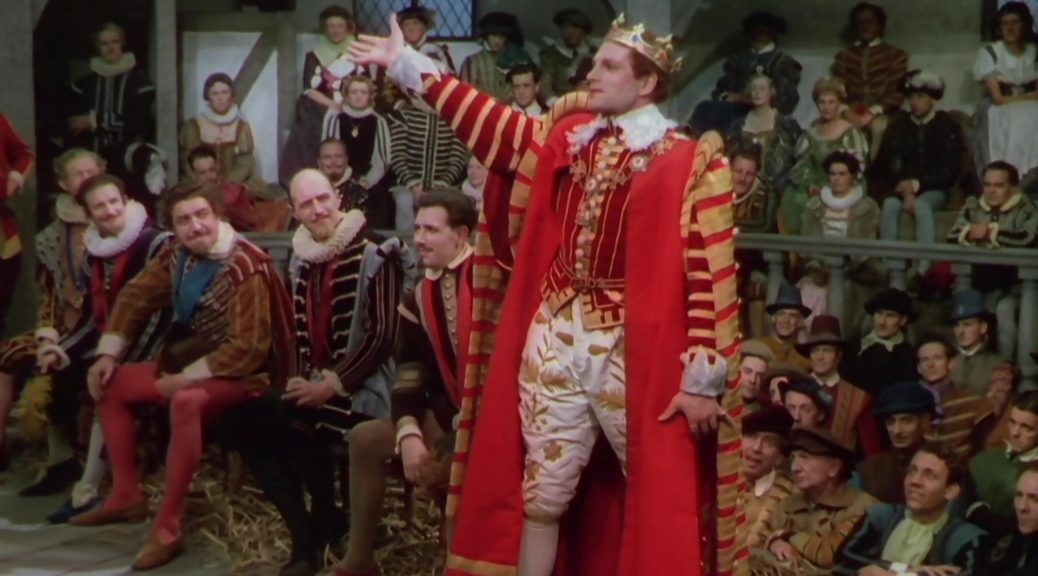
“Churchill and the Movies”: Hillsdale Lecture Series, March 24-28th
The Movies
In 1927, Winston Churchill wrote to his wife Clementine, “I am becoming a film fan.” He had projection equipment installed at Chequers, the country home of British prime ministers, in 1943, and at his family home Chartwell in 1946. “Churchill and the Movies” is the fourth and final event of the Center for Constructive Alternatives in the 2018-19 academic year. We will view and discuss two films widely regarded as Churchill’s favorites, and two Churchill biographic movies in their historical context.
Hillsdale’s Center for Constructive Alternatives (CCA) is the sponsor of one of the largest college lecture series in America. CCA seminars are held four times each year. Students are required to complete one CCA seminar during their undergraduate years. They may elect to enroll in more. Lectures are open to the public, and out-of-town guests are welcomed. There is no registration fee and the program includes dinners and lunches. “Churchill and the Movies” is now sold out, and up to 400 guests are expected plus students. Watch this space for the web stream video locations.
Partial Schedule:
Sunday 24 March
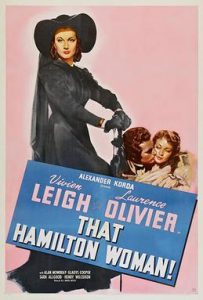 4:00pm Showing of That Hamilton Woman (1941, 125 minutes). Produced and directed by Alexander Korda, this was Winston Churchill’s clear favorite among movies. It stars two actors he vastly admired, Vivien Leigh and Laurence Olivier.
4:00pm Showing of That Hamilton Woman (1941, 125 minutes). Produced and directed by Alexander Korda, this was Winston Churchill’s clear favorite among movies. It stars two actors he vastly admired, Vivien Leigh and Laurence Olivier.
8:00 p.m. Filmmaker John Fleet: “Churchill and Alexander Korda.” Mr. Fleet has made a study of their long and fruitful relationship might have produced several more epic movies, had not World War II intervened.
Monday 25 March
10:00 a.m. “Assault on Churchill”: John Miller interviews Richard Langworth on Radio Free Hillsdale, 101.7 fm. The station will offer an audio stream.
4:00 p.m. Showing of Henry V (1944, 137 mins.) Arguably runner-up in Churchill’s affections was the 1944 British Technicolor adaptation of William Shakespeare’s “Henry V.” The on-screen title is “The Chronicle History of King Henry the Fift with His Battell Fought at Agin Court in France” (derived from the title of the 1600 quarto edition). It stars WSC’s longtime friend Laurence Olivier, who also directed.
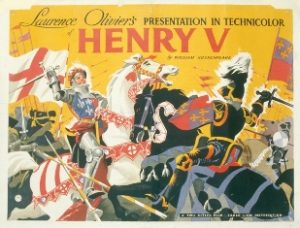 “The Play’s the Thing…”
“The Play’s the Thing…”
8:00 p.m. Richard Langworth: “Churchill, Shakespeare, and Henry V.” Excerpt:
How well did Churchill know Shakespeare? Well enough, I think, to ace a Hillsdale Shakespeare course. Both by formal quotations, and by well-known phrases almost hidden in his text, Churchill draws allusions and understanding from sixteen Shakespeare plays, from Macbeth to A Midsummer Night’s Dream—though not, surprisingly, the sonnets.
The producer Marlo Lewis says Henry V introduces us “to urgent problems of statesmanship and, through them, to questions of political philosophy….the delicate matters of legitimacy and the founding of regimes.” I think that is an aspect, but not the most important aspect. Above that and first, the importance of Henry V is what it teaches about leadership.
Churchill wrote in his History of the English-Speaking Peoples that when one of Henry’s officers “deplored the fact that they had ‘but one ten thousand of those men in England that do no work to-day,’ the King rebuked him and revived his spirits in a speech to which Shakespeare has given an immortal form: ‘If we are marked to die, we are enough To do our country loss; and if to live, The fewer men, the greater share of honour.’” Compare that to Churchill’s greatest speech, 18 June 1940: “If the British Empire and its Commonwealth last for a thousand years, men will still say, ‘This was their finest hour.’”
Tuesday 26 March
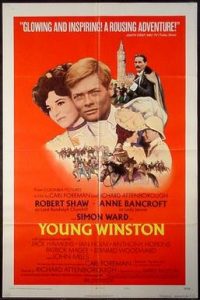 4:00 p.m. Showing of Young Winston (1972, 143 mins.)
4:00 p.m. Showing of Young Winston (1972, 143 mins.)
8:00 p.m. “Young Winston and My Early Life,” with James W. Muller, University of Alaska Anchorage. An expert on Churchill’s autobiography, Professor Muller is well qualified to survey of this remarkable 1972 biopic, starring Simon Ward as Young Winston. The cast was sensational. Anne Bancroft as Lady Randolph, is leered at by Lloyd George (Anthony Hopkins). Robert Shaw is Lord Randolph (remember “Quint” in Jaws?). Young Winston’s evil headmaster at St. George’s School is the great Robert Hardy, who would memorably play Churchill many times in later years.
Wednesday 27 March
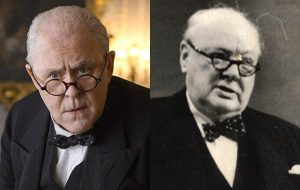
2:00 p.m. Richard Langworth: “Current Contentions- Winston Churchill and the Invasion of the Idiots.” A review of the virulent attacks on Churchill in the wake of Gary Oldman’s Oscar for his role as WSC in Darkest Hour. We will discuss four slanders in detail: Fake history in the television series The Crown. Churchill’s alleged 1930s “secret affair” with Lady Castlerosse. The continuing fable that Churchill exacerbated the 1943-44 Bengal Famine. And a renewed “golden oldie” beloved of socialists for a century: the Tonypandy riots of 1910. Excerpt:
Netflix’s The Crown is a not-so-crowning-achievement about the present Queen’s ascent to the throne and her first years as monarch. It starts off well enough. Claire Foy is an honest Elizabeth II. Matt Smith is a gaudy Prince Philip, acting the foolish playboy. Dame Harriet Walter plays a graceful Clementine Churchill.
John Lithgow as Churchill is good on the voice and mannerisms, minimizing his 6-foot-4 stature with a stoop, and by sitting down a lot. But the script gives him a cartoonish image, far from reality. All too quickly, Lithgow becomes a wheezing old gaffer, clinging stubbornly to power. Productions like The Crown suggest that truth and accuracy matter less than style and perception; that reality must bend to fit the creator’s mindset.
* * *
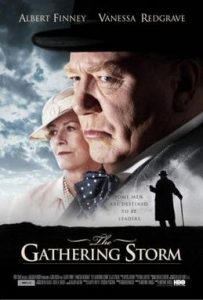 4:00 p.m. Showing of The Gathering Storm (2002, 96 mins.) Stars the late Albert Finney as Churchill and Vanessa Redgrave as Clementine. This is one of the better World War II biographical movies. Even in a cynical and anti-hero age, filmmakers still can avoid reducing Churchill to a flawed burlesque or a godlike caricature. Except for huge gap in the story line, The Gathering Storm is outstanding. (The gap is Munich, because the film skips it in the rush to war.)
4:00 p.m. Showing of The Gathering Storm (2002, 96 mins.) Stars the late Albert Finney as Churchill and Vanessa Redgrave as Clementine. This is one of the better World War II biographical movies. Even in a cynical and anti-hero age, filmmakers still can avoid reducing Churchill to a flawed burlesque or a godlike caricature. Except for huge gap in the story line, The Gathering Storm is outstanding. (The gap is Munich, because the film skips it in the rush to war.)
8:00 p.m. Hillsdale College President Larry P. Arnn: “Churchill as War Leader.” Dr. Arnn is co-editor with Martin Gilbert of The Churchill Documents. Few scholars have devoted more time over the years to studying Churchill’s statesmanship; his remarks stand to be the outstanding feature of this event.
Thursday 28 March
4:00 p.m. Faculty Round Table: Daniel Coupland, James Brandon, Darryl Hart, David Stewart






